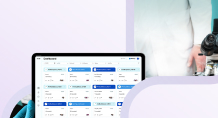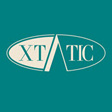What if the next life-saving drug could be discovered in half the time? The COVID-19 pandemic reminded the world just how vital pharmaceutical businesses are – not only for saving lives but also for stabilizing economies and societies.
However, there is a long and costly road behind every breakthrough. The healthcare industry has struggled for years with the slow pace and high expense of drug discovery, development, and distribution.
In 2025 alone, global prescription drug spending is projected to exceed $1.6 trillion, with no signs of slowing down.* Faced with rising costs and growing demand, pharmaceutical companies are turning to cutting-edge technology. They are harnessing data, artificial intelligence, and automation to transform patient care, improve efficiency, and accelerate innovation.
In this article, we will explore how these innovations are reshaping the pharmaceutical world. We will focus on the trends driving change, the opportunities on the horizon, and the challenges that still lie ahead.
Biggest challenges in the pharmaceutical sector

The pharmaceutical industry is facing some of its biggest challenges yet. The world expects that cutting-edge technology can help overcome them. Companies are racing to find solutions, and pharmaceutical information technology is proving to be a game-changer. Here are some of the key obstacles it helps address.
Data management
Data is growing at an astonishing rate. But how do we store, analyze, and protect it effectively? The pharmaceutical industry is handling more information than ever before with digital health records, clinical trials, and real-time patient data increasing every day. Every piece of data must be collected accurately. Then, it should be processed and integrated to support drug development and regulatory approvals.
But it is not just about the large volume – it is about security. Protecting sensitive health information while complying with strict privacy regulations is an ongoing challenge. The industry must find the balance between using data for innovation and safeguarding patient trust.
Drug discovery and development
Bringing a new drug to market even if it sounds fascinating, in reality, is a long and uncertain journey. It requires years of research, billions of dollars (or any other currency), and incredible expertise. Every stage – target identification, lead generation, clinical studies, and regulatory approvals – demands precision and patience.
However, the challenges are many: finding new drug targets, ensuring safety and efficacy, and meeting complex regulatory requirements. Personalized medicine adds another layer of difficulty. It promises tailored treatments but at a high cost. The pressure is on to speed up discoveries without compromising quality control.
Regulatory compliance
Pharmaceutical regulations are more complex than ever. Companies must navigate an intricate web of documentation. They contain safety evaluations and certification processes. Compliance is not optional. Failing to meet regulatory standards can lead to severe penalties, product recalls, and lasting damage to a pharmaceutical company’s reputation.
To make things even tougher, regulations are constantly evolving. Clinical trials are getting longer, and transparency requirements are increasing. Keeping up with these changes is no small feat.
Supply chain management
Every step in the supply chain must be carefully controlled, from the moment a drug is manufactured to the second it reaches a patient. Medications must be stored and delivered under strict conditions to maintain their safety and effectiveness.
Yet, it is a challenge to ensure a smooth supply chain. First, companies must manage inventory levels. This includes securing a steady supply of raw materials and preventing distribution delays. Moreover, counterfeit medications pose another serious threat that endangers patient health and undermines trust in the healthcare industry.
The pharmaceutical market continues to operate on a global scale, which leads to the fact that supply chain management has never been more critical.
Patient engagement
Getting patients actively involved in their healthcare is not easy. But it is essential. Better patient engagement leads to better health outcomes and this is mostly observed in preventive medicine. Prevention is connected to the self-awareness of the patient to get tested.
Patient engagement lowers costs – first by prevention and also by good medicine adherence. Moreover, higher patient satisfaction is seen with greater engagement. This is due to improved communication with healthcare specialists and a feeling of empowerment.
So why do many patients struggle? They may not have access to healthcare services, i.e. in rural regions. Patients may also find medical information confusing, as they lack medical education and medical workers do not explain clearly. Also, they can simply lack the motivation to follow prescribed treatments.
The challenge for the industry is clear: How do we empower patients to take charge of their health? Innovative solutions are needed to bridge the gap and ensure that every patient gets the support they need.
Technologies revolutionizing the pharmaceutical industry

Fortunately, the pharmaceutical industry is undergoing a transformation. Can technology be the key to solving its biggest challenges? Yes, groundbreaking innovations are reshaping the way healthcare works – from speeding up drug discovery to ensuring patient safety. These advancements are improving efficiency to the extent that they are saving lives.
Increased productivity, cut costs, enhanced patient outcomes, and regulatory compliance are just a few of the consequences of the technology revolution. Innovations like artificial intelligence, big data analytics, cloud computing, blockchain, data visualization, machine learning, and wearable devices are driving a digital revolution in the pharma industry. Let us explore how each of these innovations is changing the game.
Artificial intelligence
AI is opening new doors in the pharmaceutical sector.
Its potential is vast and can be seen in the following fields:
- Drug discovery and development – Imagine predicting a drug’s safety and effectiveness before a clinical trial even begins. AI can analyze massive datasets to identify promising drug candidates. This reduces the need for costly and time-consuming trials.
- Supply chain management – AI has the power to optimize some manual processes like management of inventory and minimization of waste. AI is also convenient for ensuring compliance with regulatory standards, making the supply chain smoother and more reliable.
- Patient engagement – There are new trends in patient management in healthcare and most of them depend on AI. For example, AI-powered chatbots and virtual assistants. They help patients stay informed and engaged in their healthcare journey.
The future of medicine is smarter and faster with AI.
Big data analytics
Pharmaceutical companies deal with overwhelming amounts of data. How can they make sense of it all? That is where big data analytics comes in.
Companies can uncover many hidden treasures with the help of vast dataset analyses. Those could be market trends, predictions for drug effectiveness, and why not even ideas for new or improved drugs.
For instance, AI can scan genomic and proteomic data to identify potential drug targets. It can also help in selecting the right patient demographics for clinical trials, improving accuracy and efficiency.
Big data-powered tools may even enhance drug design by predicting how compounds will interact with the body. All in all, we can say for sure that the insights gained from big data are transforming decision-making in the pharmaceutical world.
Cloud technology
Cloud solutions are revolutionizing how pharmaceutical companies work with data; and how they store, share, and analyze it.
Here is how they outmatch traditional methods:
- Secure data storage – Instead of maintaining expensive local hardware, companies can store vast amounts of sensitive data securely in the cloud.
- Improved collaboration – Researchers and teams worldwide can work together in real time, accelerating drug production and strengthening partnerships.
- Better patient engagement – Patients can access health records, telemedicine services, and treatment recommendations anytime, anywhere.
With cloud technology, the industry is becoming more connected and efficient than ever.
Blockchain technology
Could blockchain be the answer to one of pharma’s biggest problems – counterfeit drugs? This technology ensures transparency and trust through a secure, decentralized ledger.
- Preventing counterfeit medications – Every step in the supply chain is recorded. This makes it easier to verify a drug’s authenticity.
- Enhancing supply chain management – Blockchain improves coordination between all participants in the pharmaceutical process – manufacturers, distributors, and regulators. This ensures compliance and reduces inefficiencies.
- Increasing transparency – Patients can trace a medication’s entire history, from production to delivery. This is particularly important for maintaining safety and trust.
Blockchain has the power to reshape the industry’s supply chain, making it more secure and reliable.
Data visualization technologies

We already mentioned that complex pharmaceutical data can be overwhelming. How do researchers and stakeholders make sense of it, other than having a well-structured analysis? Data visualization tools can turn raw information into clear, visual insights.
These tools help to identify patterns and trends in clinical trials and drug manufacturing. They can compare medications and treatment options quickly and effectively. Data visualization technologies advance precision medicine by analyzing real-time patient data and forming it into easy-to-understand visuals. With them, decision-makers can act faster and with greater confidence.
Machine learning
Machine learning (ML), a subfield of AI, is pushing the boundaries of what is possible in healthcare.
It is able (but not limited) to improve:
- Disease diagnostics – Machine learning can detect diseases earlier and more accurately than ever as it analyzes patterns in medical records and imaging data.
- Drug discovery – Algorithms can identify relationships between compounds, biological targets, and disease mechanisms. This speeds up the development of new drugs to unimaginable extents.
- Clinical trials – Machine learning helps select the right patients for trials which in many cases is the basis for having well-structured and accurate pharmaceutical research. It also predicts side effects, leading to safer and more efficient studies.
The ability of ML to learn from vast amounts of data is changing the future of medicine. It is no surprise that its role in healthcare is growing.
Wearable technology integration
Smartwatches, fitness trackers, and biosensors are just a few examples of wearable gadgets. But they are not just shiny bijou – they are powerful tools for real-time health monitoring. These devices track vital signs like heart rate, blood pressure, and glucose levels.
For example, chronic disease management in diabetes relies on the levels of blood glucose. If they are extremely low, alerts are sent to family members. If they appear extremely high, a change in the medication would be beneficial.
Wearables provide valuable data for clinical trials. They are more and more integrated in the field to ensure accurate drug safety assessments. Wearable technologies also help in developing personalized treatment plans tailored to each patient’s unique needs and lifestyle.
Moreover, wearables make healthcare more proactive. They allow doctors to intervene before problems escalate. This prevention-centered approach is becoming extremely important in modern medicine.
How do pharmaceutical information technologies boost a pharma company’s performance?

In today’s fast-moving world, competitiveness in the pharmaceutical industry is more challenging than ever. Technology is a necessity. The right IT solutions can increase efficiency, reduce costs, and improve patient care. But how exactly do they transform the industry?
Drive more returns from technological investments
Pharmaceutical information technology can do more than support daily operations. Advanced digital tools improve data accuracy, automate time-consuming tasks, and streamline decision-making. The result? Higher productivity and fewer costly mistakes.
Automation is key. When processes run smoothly with minimal human intervention, companies save time and reduce error rates. Better data management is another game-changer. With accurate, real-time insights, business leaders can make informed decisions and quickly adapt to market shifts.
Technology also strengthens communication. When teams and departments stay connected, collaboration improves, and misunderstandings decrease. Digital solutions even make remote work easier, helping companies attract top talent while cutting office costs. Every step forward leads to a leaner, more efficient, and more innovative organization.
Protect the enterprise by minimizing the risk
Regulatory compliance is one of the biggest challenges in the pharmaceutical industry. The stakes are high – one mistake can lead to penalties, recalls, or even reputational damage. This is where IT solutions make a difference.
Automation reduces human errors by handling compliance processes with precision. Electronic systems store and manage critical records, ensuring that no important data is lost or overlooked. Real-time monitoring helps companies track compliance at every stage of production. It allows them to detect and resolve issues before they become major problems.
With these tools in place, pharmaceutical companies can stay ahead of evolving regulations and protect their business.
Outperform the competition
Access to the right data can make all the difference in a highly competitive market that is pharmaceutical. Pharmaceutical IT solutions help companies analyze prescription trends and understand patient needs more effectively. These insights shape smarter manufacturing, marketing, and sales strategies.
Efficiency is another key advantage. With optimized supply chains and automated logistics, companies can speed up production and deliver products faster. This reduces costs and increases satisfaction. Less waste, quicker turnaround times, and lower expenses give businesses the edge they need to stay ahead.
Stand out in the precision medicine market
The future of healthcare is personalized medicine and pharmaceutical IT is making it possible. Pharma companies have powerful assets – access to patient records and advanced analytics. They help develop targeted treatments that meet individual needs.
Technology also plays a role in patient engagement. Digital tools have different forms – they can be mobile apps, online portals, etc. Their common benefit is that they help patients stay informed, track their treatments, and take an active role in their healthcare.
When patients understand their conditions and feel supported, they are more likely to stick to their treatment plans. This leads to better health outcomes and stronger connections between patients and healthcare providers.
Breaking barriers: Overcoming challenges to implementing pharmaceutical information technologies

The road to digital transformation is not always smooth. While pharmaceutical information technologies offer game-changing advantages, their adoption comes with hurdles.
Integration issues, resistance to change, high costs, and strict regulations can slow progress. But are these barriers impossible to overcome? Absolutely not. With the right strategies, companies can navigate these challenges and unlock the full potential of technology.
Lack of integration
New technologies are only as powerful as their ability to work within existing systems. So what is the problem? Many legacy systems are outdated and struggle to keep up with modern IT solutions. The result is inefficiency, frustration, and missed opportunities.
The good news is that integration is possible. Companies can work closely with IT consultants and software vendors to ensure new systems connect seamlessly with the old ones. Upgrading outdated infrastructure may be necessary, but it is an investment in a future where data flows effortlessly and operations run smoothly.
Resistance to change
Change can be intimidating sometimes. Employees who have used the same processes for years may feel uneasy about new technologies. Will they struggle to adapt? Will their roles change? These fears can create resistance and slow down progress.
But change does not have to be frightening. Companies that take the time to educate their employees and provide hands-on training can turn hesitation into enthusiasm. Also, involving staff in the process and addressing their concerns can shift the mindset from fear to excitement.
Cost
There is no denying it – implementing pharmaceutical IT solutions requires significant investment. Software, hardware, and skilled personnel all come at a cost. However, it does not end there. Regular maintenance and updates add to the financial commitment.
You may ask if it is worth it. The answer lies in the long-term significant benefits. A thorough cost-benefit analysis helps companies see the bigger picture – higher efficiency with fewer errors that lead to faster drug development and improved patient care.
To ease the financial burden, businesses can explore leasing options, financing plans, and phased implementation strategies. A well-planned investment today leads to substantial savings and growth tomorrow.
Regulatory compliance
In the pharmaceutical world, compliance is non-negotiable. Regulations are strict, complex, and constantly evolving. Implementing IT solutions while ensuring full compliance can feel overwhelming. We already mentioned the consequences of non-compliance.
However, companies do not have to navigate this alone. Partnering with legal experts and compliance specialists can simplify the process. Investing in compliance training ensures that employees understand regulations and can quickly address potential legal concerns. With the right support, businesses can turn compliance from a burden into a strength.
Get ahead in the pharma industry with new information technology solutions Get ready to transform your pharmaceutical operations with the latest information technology by discovering the best solutions with one of our software strategy experts

Conclusion
The future of information technologies is promising as a result of constant changes and innovations in the sector itself. Some of the emerging technologies that will impact the pharmaceutical sector in the upcoming years include artificial intelligence, blockchain, big data analytics, cloud technologies, machine learning, and data visualization technologies. These advancements will not only optimize operations but also revolutionize drug development and patient care.
Pharmaceutical companies can stay competitive and provide better healthcare for patients all around the world by adopting these technologies and overcoming the obstacles to their implementation.
However, introducing advanced IT solutions into the pharmaceutical industry may bring about new challenges. Such are data privacy and security concerns, regulatory compliance issues, and the relevance of data.
Therefore, it’s essential to consult with a reliable IT company that has a proven track record of implementing AI and machine learning solutions in the pharmaceutical industry. Among these companies, BGO Software stands as a leader in the field.














